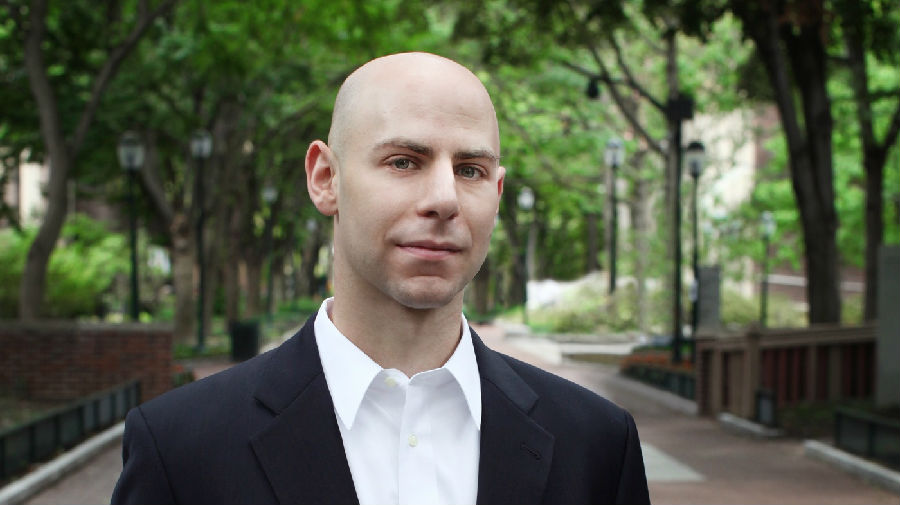WILLIAM BRANGHAM: Now for another installment of our weekly series Brief But Spectacular. It's where people tell us about their passions. Adam Grant is an organizational psychologist at Wharton Business School and an author most recently of "Option B," which he co-wrote with Facebook's Sheryl Sandberg. In his new podcast, "WorkLife," grant goes inside some of the world's most unusual workplaces to discover the secret to better work.
ADAM GRANT, Psychologist: I read a study not long ago which showed that highly creative adults grew up in families where their parents are argued more, not only argued more, but argued in front of their children, which, as a dad, I just thought was something you're never supposed to do. And yet, the more I read about this research, the more I realized that if you never disagree in front of your kids, they think there's one right answer to everything, whereas if they see you argue, they realize there might be multiple perspectives on a problem, and they have to learn to think for themselves. It's not how often parents argue that affects kids' well-being. It's how constructively they argue. There are a few rules for good arguing that I like to follow. One is to argue like you're right, but listen like you're wrong. Instead of arguing to win, you can argue to learn. And then you have to acknowledge when your opponent has a made a good point. I think most of us are terrible at hearing criticism. Think about what happens to you physically. Your shoulders start to tense. Your body tightens up. Your heart races. And you just feel like you're being physically attacked.

There's an experiment I love about how to give criticism so that other people really hear it. And it only take about 19 words: I'm giving you these comments because I have very high expectations of you, and I'm confident that you can reach them. It changes the conversation. Instead of saying, oh, no, this person is about to attack me, the person receiving the feedback says, oh, this person is trying to help me. I have spent a lot of time working with Sheryl Sandberg, the COO of Facebook, and have learned a lot from watching her lead. One of the things that Sheryl Sandberg noticed was that, as she climbed up the hierarchy in her career, people stopped giving her negative feedback. Sheryl's obsessed with feedback. In fact, she's been told that she asks for too much feedback as a point of feedback. One of the things that I have watched her do in meetings is, she will open a meeting by giving herself negative feedback out loud, saying something like, I know I talk too much in meetings, and I'm trying to work on that. The other thing she often does is, she will open a meeting and go through the agenda, and then go around the room and ask for every single person to give their viewpoint before she shares hers, so that people aren't catering, you know, their opinion to what they think the boss wants to hear. When I was 26, I was barely out of grad school, and I got signed up to teach a half-day class on motivation. And after I committed, I found out it was going to be generals and colonels in the U.S. Air Force. I was half their age. They looked like they were right out of the movie "Top Gun." I walked in, and I felt like I have to establish my credentials, why I was qualified to teach the class. And I delivered the class. I could tell it wasn't going well.
And when I read the feedback forms afterwards, it was even worse than I had feared. There was one guy who wrote that there was more knowledge in the audience than on the podium. There was another who said, I gained nothing from the session, but I trust the instructor gained useful insight. It was like a dagger to the heart. And I wanted to quit. But I had already signed up to do a second session. I shifted my approach. And I walked in. And I said, I know what you're all thinking right now. What can I possibly learn from a professor who's 12 years old? Then I heard a colonel pipe up. His code name was Hawk. And he said, "No, no, that's way off. I'm pretty sure you're 13." And after that, I delivered basically a carbon copy of the same material from before, but the feedback forms were night-and-day different. And I think what I learned from that was sometimes acknowledging our weaknesses, you know, sort of admitting our limitations can actually make us stronger. My name is Adam Grant, and this is my Brief But Spectacular take on feedback.
WILLIAM BRANGHAM: You can watch all our Brief But Spectacular episodes on our Web site, PBS.org/NewsHour/Brief.












